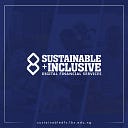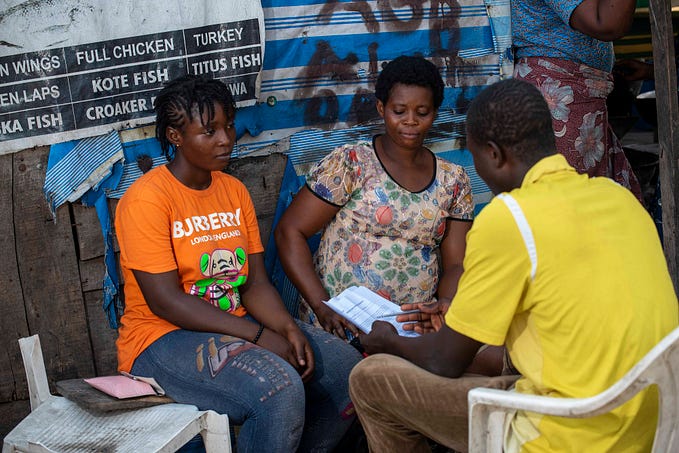Non-Interest Housing Loans: Financial Inclusion or Using Oso’s money to pay Oso?
An authentic gift or sleight of hand?

There is apparent good news in the financial inclusion space — the non-interest home loan product of the Federal Mortgage Bank of Nigeria. Is this an authentic gift or sleight of hand, or as some people say, using money surreptitiously exacted from you to give you a generous gift?
Non Interest Housing Loans.
The National Housing Fund is open to all employed Nigerians with a steady stream of income. They are meant to register with the Fund and remit 2.5% of their monthly salary through their employer. Self-employed persons can also participate. Contributors are eligible to apply for a maximum loan of N15 million covering up to 90% of the cost of the house, at 6% interest per annum, payable over 30 years through the principal mortgage institution that disbursed the loan. Refunds with 1% interest are to be made on unutilized contributions at retirement. Contributors can use a USSD code (*219#) to complete their mortgage financial transaction without having to visit a mortgage institution for verification. The USSD code can also be used to retrieve NHF number, verify monthly payments and correct profile details. The Federal Mortgage Bank is also favorable to whole sale loans to developers of inexpensive mass housing for the low-income market.
FMBN has various products, such as the individual Home Construction Loan for bare land at interest rates from 7% to 9% per annum and the Rent-To-Own Product respectively. Cooperative Housing schemes loans up to N500million at up to 24 months with a moratorium of 12months and interest rate of 10%.
The NHF is obviously a social housing fund and the migration to digital transactions through USSD is commendable. The question is: how many employers are registered, or, when registered, faithfully remit the employees’ contributions? How many self-employed person are on the scheme (due to the size of the informal sector)? How inclusive is the Fund, is it designed to serve the unserved segments of the populace and does it adequately serve the underserved? It is reported that FMBN has over 5 million contributors to the National Housing Fund (NHF) Scheme. Apparently, not up to 30,000 contributors have benefited from the scheme since inception, whilst affordable construction finance may not have totaled more than 50,000 housing units as well. These numbers either suggest serious problems of scaling due to institutional or infrastructural constraints, inapt design of the social housing program or inept implementation or all of these factors and more. Whatever the answer is, the situation also presents welcome opportunity for reform, de-bottling of institutional and organizational constraints, creation of a more impactful and inclusive scheme and development of more inclusive housing products for the bottom of the market and financially excluded.
The non interest loan is based on Islamic banking non-interest financing contract of ‘Jarrah Mujtahid Bitamleek (Lease to Own). The FMBN owns the property until the contributor’s financing term ends or at any time during the lease period that the beneficiary wishes to purchase the property. The contributor pays a rental sum during the period. Islamic banking is supposed to be without riba or interest. It appears that conventional financing concepts are not easily translatable. For example, does the credit provider recover the cost of financing or anything to cover the time value of money? Apparently, rental payments may include a base rate (BR) (some scholars indifferently term it profit rate), which is fluctuated according to the economic performance of the country. This may cover cost of financing as monthly instalment for this product is also computed using present value of annuities (PVA). An explicit profit rate is not charged but the precept and practice ensures that the credit provider does not exact a usurious rate of return on the loan. There is little likelihood of most contributors accessing NHF loans and the refund on retirement at 1% or 2% interest amounts to a net negative rate of return. Evidently, there is a need for a radical overhaul to arrive at an authentic social housing scheme that drives inclusion. Is NHF not an Osho’s gift?
Whatever be the case, there is no doubt that the product will resonate with Muslims and is thereby inclusive by covering that segment of the market. The product is not a gift but a product that enables adherents of the Islamic faith to comply with Islamic precepts of financing and avoid usury. It is a moot point whether in conventional and non-Islamic finance, 6% per annum charged on NHF loans is considered usurious. No doubt, more impact and true financial inclusion is required on housing financial products and there should be greater attention and focus on progressing this agenda, as well.
— — — — — — — — — — — — — — — — — — —
Professor Olawale Ajai is the Policy Lead at the Sustainable and Inclusive Digital Financial Services initiative of the Lagos Business School










